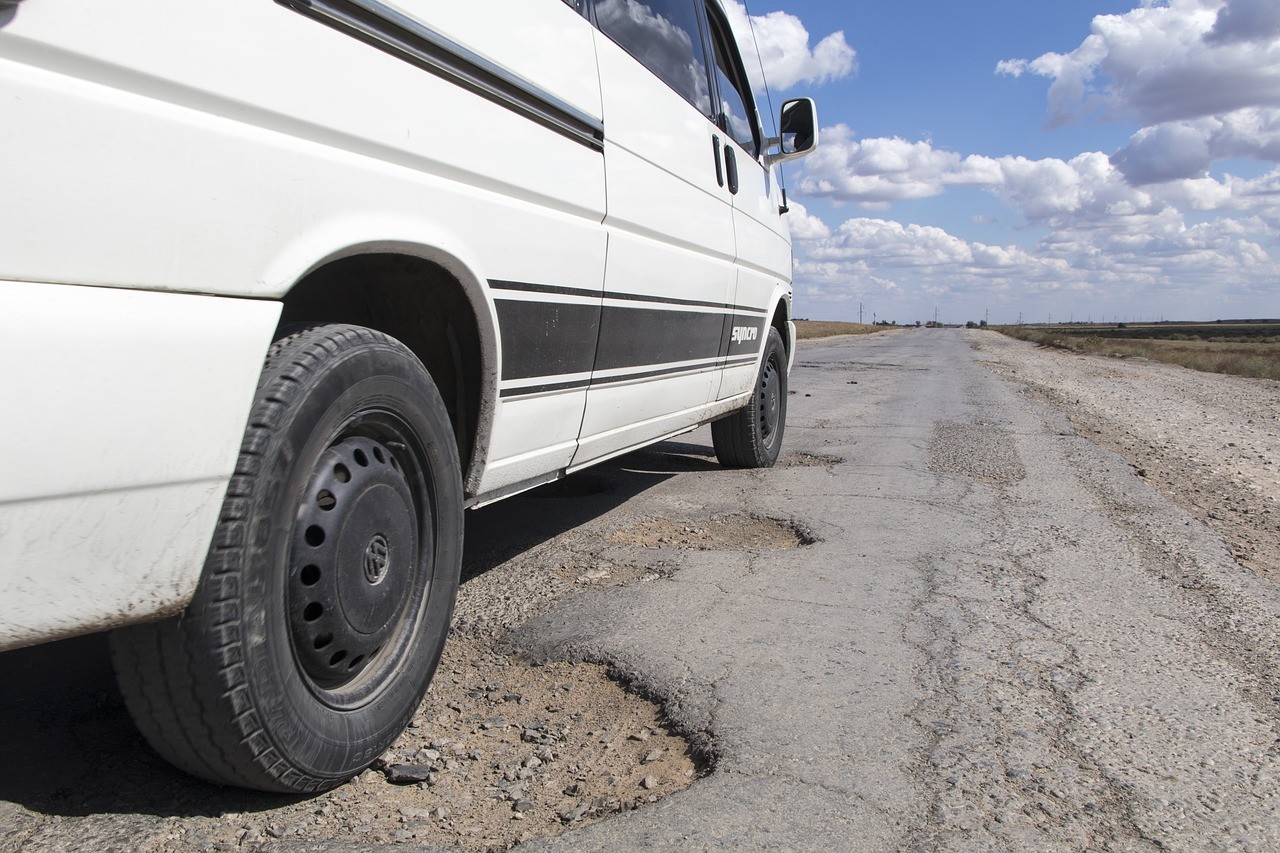To put it plainly and obviously, nobody likes potholes. Not only are they a heck of an eye-sore for any road or parking lot, but they're a pain to drive over and can even be troublesome for vehicles when they're really bad (we've all driven over at least a few obnoxiously large and/or deep potholes in our lives). Unfortunately, despite this fact, potholes are everywhere that there are paved surfaces.
From business/property owners and government bodies that actually own and/or maintain things like roads and parking lots, down to the average driver just wondering why their driving experience is so poor, the question of "how do potholes form" is extremely common. Let's dive into the answer to that question, as well as the things you can do to prevent and repair potholes - because we all know we'd love to encounter fewer of them in our day-to-day.
What Causes Potholes to Form?
Asphalt pavement is not only exposed to potential deterioration due to the amount of vehicle use or the age of the surface - weather and environmental factors are one of the biggest influences on the health of asphalt. From UV rays to rainwater, vehicle oil leakage and more, there are a number of things that can lead to damaged pavement. When it comes to potholes, however, weather is the biggest factor - in particular, water and freeze-thaw cycles are the main culprit behind those pesky holes in the road causing you so much grief on your commute to work.
A surface paved by a professional asphalt contractor should be designed to let water drain off properly rather than sinking into the pavement itself, but as well all know, water tends to find a way. When water gets into the sublayers then freezes, it expands (think about what happens when you freeze water into ice cubes), thereby causing the pavement itself to expand. When it thaws again, it leaves space behind in which water can continue to gather, freeze and thaw. As this happens over and over, the surface of the asphalt will begin to crack and deteriorate and eventually a truck may run over that spot and "pop" it - and thus, a pothole is born. - source
Why Are Potholes So Bad?
The trouble with potholes is that they become a massive opening for even more water to easily get into the sublayers of the asphalt. This means that the longer a pothole (or even the initial cracks that lead to them) is left in disrepair, the more opportunity it has to expand, becoming bigger and bigger and leading to greater deterioration across the rest of the asphalt surface. This is why it's so important to follow a regular maintenance plan (read our asphalt maintenance plan guide) and fix potholes as soon as they appear (or ideally fix the precursor - cracks - when the first signs appear). Waiting means more extensive and therefore expensive repairs, and in a worst-case scenario can even mean needing a full asphalt resurfacing or replacement. So now that you know the answer to the question of "how do potholes form", let's examine the best ways to prevent or repair them.
Pothole Repair and Prevention
The best approach to asphalt maintenance involves a set of annual preventative measures meant to stave off larger damages that require more involved repairs. Once damages are too rampant, however, more involved repairs may be necessary to prevent your pavement from entirely deteriorating beyond repair.
Preventing Potholes From Forming
The best way to prevent potholes is by performing regular maintenance throughout the year on your asphalt surface. This means keeping an eye out for the early warning signs of deterioration - think cracks, small holes, etc - and dealing with them as soon as possible before they develop into larger issues. These are some of the standard preventative measures you can take to deal with minor deterioration and prevent bigger problems like potholes:
Repairing Potholes
If you're already past the point of prevention and have existing potholes in your pavement, the best thing you can do is properly repair them as soon as possible using infrared asphalt patching in order to prevent further damage from occurring. The cost of repairing potholes depends on the number and size of potholes as well as how deep the damage is - if the deterioration has affected the entire sublayer, sometimes it may be necessary to replace the base layer in that area before filling the hole with fresh asphalt.
Call in the Asphalt Maintenance and Repair Experts
Not sure what the best solution is to your asphalt problems, or simply ready to call in the pros to help fix or maintain your pavement? High Quality Asphalt & Concrete is just a call or email away - get in touch today for a FREE quote.
